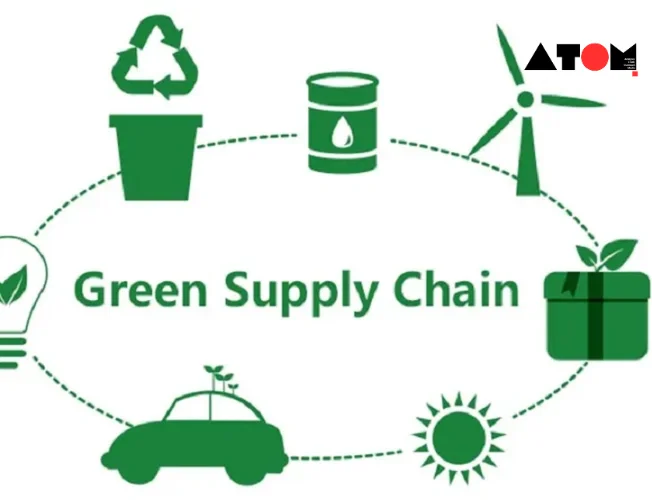In today’s environmentally conscious world, businesses are increasingly prioritizing sustainable practices. Green Supply Chain Management (GSCM) emerges as a strategic approach to integrate environmental responsibility throughout the supply chain. This article explores the evolution of GSCM, its benefits across industries, future trends, and challenges faced in implementation.
What is Green Supply Chain Management (GSCM)?
GSCM focuses on incorporating environmentally friendly practices at every stage of the supply chain, from sourcing materials to production, distribution, and disposal. It adheres to the principles of Reduce, Reuse, Recycle, Reclaim, and Degrade (5Rs) to minimize environmental impact.
Why is GSCM Important?
The rise of GSCM is a direct response to growing environmental concerns like climate change. Initially focused on reducing the ecological footprint of supply chain activities, GSCM has evolved to encompass broader strategies like:
- Using sustainable materials
- Implementing energy-efficient manufacturing processes
- Embracing circular economy principles
Benefits of Green Supply Chain Management
- Alignment with Sustainability Goals: GSCM aligns with the growing demand for sustainable business practices, making it a strategic advantage.
- Enhanced Brand Reputation: Consumers are increasingly drawn to eco-conscious brands, boosting brand image and customer loyalty.
- Compliance with Regulations: Stringent environmental regulations are prompting companies to adopt GSCM practices to avoid legal repercussions.
- Reduced Operational Costs: Energy-efficient practices and waste reduction can lead to significant cost savings in the long run.
Industries Leading the Green Charge
Across various sectors, including automotive, technology, food & beverage, and fashion, companies are recognizing the importance of GSCM and taking concrete steps towards its adoption. Here are some industry-specific examples:
- Automotive Industry: Efforts are underway to enhance fuel efficiency, reduce emissions, and promote electric vehicle adoption.
- Food & Beverage Industry: Integration of sustainable agriculture practices, water reduction measures, and ethical sourcing are gaining traction.
- Fashion Industry: Focus on sustainable material procurement, ethical labor practices, and eco-conscious packaging is crucial for reducing the environmental footprint.
Future Trends in GSCM
- Digitalization and Technology: Blockchain, Artificial Intelligence, and Big Data will optimize operations, reduce waste, and enhance supply chain transparency.
- Circular Economy Principles: Emphasis on product life extension, refurbishment, and recycling will gain prominence.
- Regulatory Compliance: As environmental regulations tighten, companies will need to adapt to stricter green standards.
Challenges of Implementing Green Supply Chain Management
- Initial Investment: Transitioning to sustainable practices and technologies often requires significant upfront investment.
- Supply Chain Transparency: Ensuring transparency across complex global supply networks can be challenging.
- Limited Availability: The limited availability of sustainable materials and technologies can pose obstacles.
Overcoming Challenges and Moving Forward
Collaboration between businesses, policymakers, and stakeholders is essential to overcome these challenges. Innovation, collaboration, and regulatory support are key to achieving a sustainable future through GSCM practices.
Green Supply Chain Management offers a win-win situation for businesses and the environment. By prioritizing GSCM, companies can gain a competitive edge, meet consumer demands, comply with regulations, and contribute to a more sustainable future. The journey towards a greener supply chain requires a strategic balance between environmental responsibility and economic viability, tailored to each industry’s unique needs and aspirations.
Read more: Marketing News, Advertising News, PR and Finance News, Digital News





